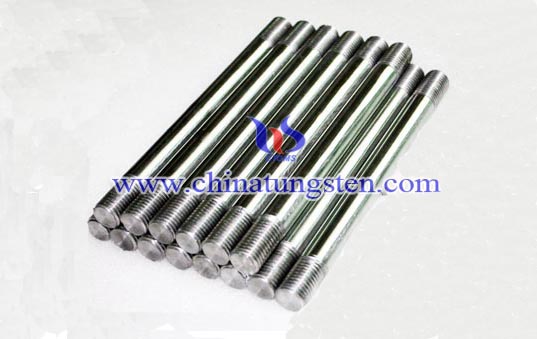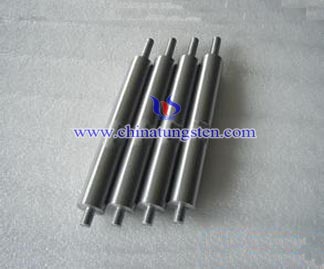Molybdenum Glass Melting Electrode Properties

Introduction
Molybdenum electrode has high strength, high hardness, good high temperature anti-oxidation property, long service life and other properties. The main ingredient is molybdenum (Mo). High purity molybdenum electrode Mo content is not less than 99.95%.
Molybdenum Electrode Chemical Properties
Molybdenum glass melting electrodes have good chemical properties. At the room temperature whether in air or water, molybdenum electrodes are stable, but when the temperature reaches 400℃, it will has slight oxidation. When the temperature reaches 600 ℃, the oxidation is severe and will produce molybdenum trioxide. In addition, molybdenum electrodes do not dissolve in hydrochloric acid, hydrofluoric acid, nitric acid and dilute alkali solution, having good corrosion resistance, so they do not work for the molybdenum electrodes. However, molybdenum electrodes can be dissolved in nitric acid, aqua regia or hot sulfuric acid solution. It will not react with hydrogen at very high temperatures, but in 1500 ℃ it can react with nitrogen forming molybdenum nitride. Over 1100~1200 ℃ it can react with carbon, carbon monoxide and hydrocarbons to form carbides such as MoSi2 and MoSi2. But even at 1500 ~ 1700 ℃ oxidizing atmosphere, the molybdenum electrode is still quite stable and will not be oxidation and decomposition.
Molybdenum Electrode Physical Properties
Physical properties of the molybdenum electrode are as following: Density: the density of sintered products: ≥9.8 g/cm3; the density of pressure processing products: ≥9.9 g/cm3. Surface: molybdenum electrode surface showing silver gray metallic luster, and no delamination, cracks and other defects. Hardness: the hardness of sintered products (HRA): ≥47; pressure processing product hardness (HRA): ≥50. Conductivity: 30% IACS Min. Packaging: each batch of products wrapped with a moisture-proof paper, packed in wooden cases (boxes), fixing the electrode by filler material.

